Wow - I kind of dropped off the face of the blogosphere for a few weeks! I promise I'm still here and still making things, I just haven't had anything finished to show yet. I have also been reading a great deal, and I made it a point to catch up on my reviews to finish out what I read last year. So if you're not into book reviews, feel free to skip this post. More sewing and knitting fun will be up soon!
This was a great book and very well done to the period. I found the descriptions of English society very believable, and I very much enjoyed the aspect of Fairy very interesting. I loved the constant switch between the real world and the Fairy world. This is one of those "intimidatingly large books" to a lot of people, but I feel it was large enough to properly describe all aspects of the story and characters, which I really appreciated. If you like Regency Era stories and magic, then I definitely recommend giving this a read. I give this book 4 out of 5 stars.
The Picture of Dorian Gray is the type of book that really shows me what was considered a "horror story" 100 years ago is very tame by today's standards. The story is an interesting idea - a man sells his soul to remain young and beautiful while a portrait of himself bares the brunt of aging. He spends his life doing terrible things, which come around to bite him in the end. I feel like it's a tale most of us know nowadays, but reading the book was still enjoyable. I love Oscar Wilde's witty retorts. I give this book 3 out of 5 stars.
MirrorMask is a Neil Gaiman story that he wrote as a film and then turned into this novella afterward (which I honestly did not know until after I read the book). I can't think of much to say since it's such a short story, but if you're a Neil Gaiman fan it does deliver. I give this book 4 out of 5 stars.
The Lovely Bones has probably been read by everyone but me at this point. This is the story of a serial killer in the 70s told through the eyes of one of his victims after she has already been killed. I loved the perspective in this book - really that took a tale we've (sadly) heard before and made it something above the norm and worth reading. Susie's family is broken in so many ways, and the book did a great job of showing how her death effected each family member and relationship. Things get a bit strange at the end, but overall the book was engaging and kept me wanting to learn what happens. I give this book 4 out of 5 stars.
Believe Me is a memoir by one of my favorite comedians - Eddie Izzard. I listened to the audiobook of this and in some ways it was better and in some ways it was worse. The entire book consisted of "long-windy-footnotes" that I'm sure are not in the actual book, consisting of many little side stories and quips. Sometimes these were hilarious, and sometimes they were tiresome and I just wanted to get on with the story already. I felt there was an arrogant amount of detail given to his younger years - no matter how much I enjoy someone's comedy, I certainly don't need to know what part they played in their school play each year, etc. Also he really felt the need to drive home the "there is no God" notion ad nauseum. I enjoyed this book for the most part, but I feel it is really only to be enjoyed by those who are already familiar with his comedy and therefore care what he has to say on some points. This was like a very long show, so buckle up if you decide to give it a listen. I give this book 4 out of 5 stars.
The Tale of Despereaux is an adorable story of a mouse who wants to be a knight. He falls in love with the princess Pea, and when he hears an ill-intention-ed rat's plot to kidnap her he jumps into action. This was a nice little read and I will definitely recommend it to those with kids. I give this book 4 out of 5 stars.
Ready Player One shows an alternate future in 2045 where life is so bad in the real world that everyone lives their lives digitally in The Oasis. The story follows Wade, a teenager who is obsessed with a video game quest to win the fortune of the deceased creator of The Oasis. Wade spends all of his time trying to discover the hidden clues in the game, and when his name shows up at 1st place on the scoreboard, things really kick off as other players and an evil major corporation try to beat him to win control of The Oasis. The book is full of obscure 80s nerd culture references from movies to music to video games. The story is typical in that just when you think the hero will be defeated, he pulls through (and, of course, gets the girl). The story was entertaining, and it was certainly interesting to have a video game world described in a book. I couldn't help but feel that the book was written with the full intention of being a movie though, so I think it will come across better that way. In spite of my grudge against YA fiction, I did enjoy this book and recommend it to others on the verge of nerd-dom. I give this book 4 out of 5 stars.
Murder on the Orient Express is a classic murder mystery with a slight twist at the end. Hercule Poirot boards the Orient Express simply to travel but finds himself being called into action to discover who killed one of the first class passengers. When the passenger turns out to be a much hated murderer under an assumed name, everyone in the train car has a motive to kill him. The plot unfolds as Poirot notices clues that no one else can see, ultimately discovering the cultprit. If you're a fan of mystery, this si certainly one to put on the list. I give this book 3 out of 5 stars.
David Copperfield is a story that seems to have heavily influenced the modern idea of what conditions child laborers endured in the mid-1800s. David's father dies before his birth, leaving his simple and lonely mother to care for him with her maid. Eventually, she decides to marry again, giving David the now stereotypical horrible step father. Mr. Murdstone treats his new wife as a know-nothing child, bringing in his unmarried sister to run the household for him. The two Murdstones try to teach David's mother, Clara, "discipline", both for herself and for her son. Eventually the Murdstones cause Clara's death as well as the death of her newborn baby. Upon his mother's death, David is sent to a factory to work for his living at the age of 11. The conditions are horrible and eventually David runs to the only living relative he knows of, walking for a few days to get there. His aunt, Betsey Trotwood, takes pity on him and saves him from the fate of the awful Murdstones' care.
With his aunt, life for David finally looks like it might be ok. She sends him to school in town and pays for his living with the Wickfields, Betsey's solicitor and his daughter Agnes, who become like family to him. By living there, he also associates with Uriah Heep, the solicitor's apprentice, whom is is constantly uneasy about (with good reason as the story unfolds). Eventually, David decides to become a proctor, and Betsey sets him up with Mr. Spendlow. David does not care much for Spendlow, but he falls immediately in love with his beautiful but silly daughter, Dora. Just when David thinks he will be able to propose to Dora, he finds out that his aunt's fortune is completely gone through some unfortunate investing, making him have to go to work. He does marry Dora, but their marriage is never very happy in spite of their love simply because they are such different people (a main theme of the book). I'll stop the synopsis there - suffice it to say that the story has many twists and turns, constantly upending the happiness of poor David and those he loves.
I found this book very interesting. In true Dickens fashion, the characters are just that - characters - many with very one-note existences and mannerisms. For some characters, this is what made them great (Betsey Trottwood) and for others it annoyed me to no end (Dora Spendlow - ugh). The overall message of the unfortunate circumstances of life and making the best of things was a good one, and the lessons David learns definitely make this worth a read. I find it interesting that this book is the most autobiographical that Dickens ever wrote, poor man. This classic certainly earns its place in literary history, but it's not Dickens' best, in my opinion. I give this book 3 out of 5 stars.
Braving the Wilderness - I read this quite a while ago, and when I think back on it the only things I can remember are that she talked about our need for feeling included in our society and how it works to our detriment. I know there was more in there, but having read a few of her other books before this one, they all seem to blend together. I did give this book 4 out of 5 stars, so I clearly thought more of it at the time, lol.
Children Standing Before a Statue of Hercules is a collection of short stories curated by David Sedaris. Some of these stories were wonderful and some I have kind of forgotten about. I loved the Patricia Highsmith story, Where the Door Is Always Open and the Welcome Mat Is Out, as well as Cosmopolitain by Akhil Sharma. This is one that I intend to read again at different times to see which stories resonate with me more as time goes by. This is definitely an interesting collection of stories though. I give this book 3 out of 5 stars.
To the Lighthouse gives short glimpses into the lives of the Ramsay family while they are on holiday just before the 1st world war as well as years later. The story focuses on helping you to really understand the thinking and motivations of each of the family members while they are basically living an ordinary few days. The first half of the story has the characters all focused on living life while the second half has them all majorly effected by death. The story is beautifully written, even if not much really happens. I give this book 3 out of 5 stars.
In Cold Blood is what started the True Crime genre. Capote chronicles every known detail about the death gruesome murdering of the Clutter family in Holcomb, Kansas. The entire story of the town is painted in great detail, so the reader gets a sense that they know and can therefor judge these people. The story keeps you wanting to know what happened and also tries very hard to make you sympathetic to the murderers in spite of there being to valid reason for this crime. I'm not a big fan of this genre in general, but the book is well written and suspenseful. Personally I don't enjoy the glorification of serial killers and the like so I don't much care what their motives were. The book was an interesting read in spite of my personal opinions though. I give this book 3 out of 5 stars.




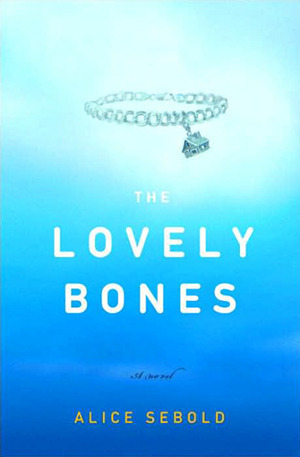


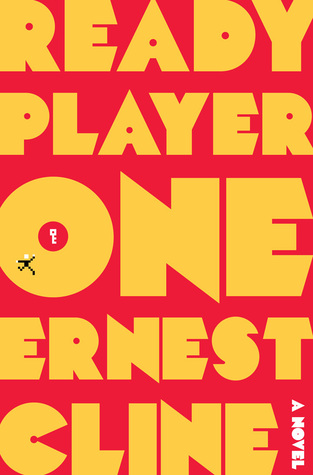
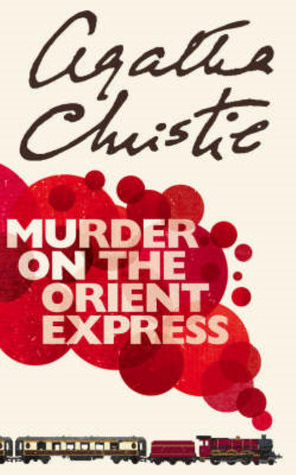



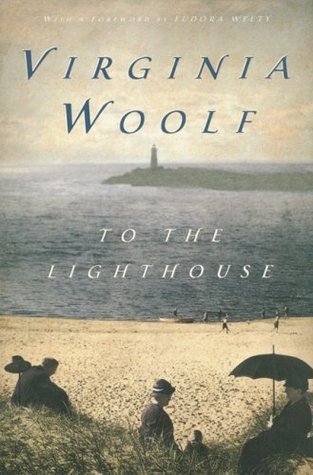
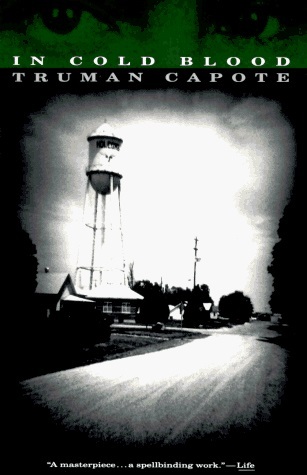
No comments:
Post a Comment
Thanks for joining in the conversation!